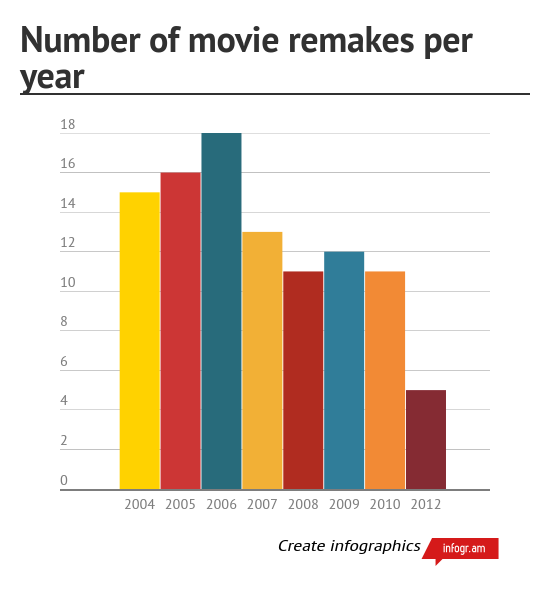The past five years in movies have been an abundance of reboots, sequels and spin-offs. It’s become rare in recent years to find original works that are a box-office success. Five of the top 10 box office successes this year were sequels or adaptations of comics and books. Studios seem to think of these movies as sure hits.
These movies draw inspiration from comic books that so often include every type of geek. The market is saturated with the same white male superheroes and the same stories of redemption. This problem makes it appear as if Hollywood is running out of original ideas.
The long list of box office failures, reboots and sequels seen in recent years includes “Fantastic 4” (2015), “Total Recall” (2012) and “Terminator: Genisys” (2015); the average score for the three films on Rotten Tomatoes is a pitiful 19 percent. These adaptations of cult movies so often serve as a cash grab, only one frustrating aspect about this phenomenon. Perhaps more frustrating than the constant reboots is how these movies refuse to innovate the characters in any way, a problem that is especially apparent in superhero movies.
This summer’s much maligned “Fantastic Four” marked the franchise’s first reboot, only 10 years removed from 2005’s "Fantastic Four" sequel. Spider-Man is soon to follow suit, with English actor Tom Holland being the third actor to play the character within ten years.
“I wouldn’t mind, if Peter Parker had originally been black, a Latina, an Indian or anything else, that he stay that way, but we originally made him white. I don’t see any reason to change that,” Lee said to Newsarama.

By refusing to innovate their characters, Marvel will be forcing its viewers to sit through another Peter Parker origin story for the third time in a little over 15 years. How many more times will audiences be cajoled into watching the same story again and again?
Mainstream comics have been featuring a surprising amount of diversity lately, dealing with complex themes of racism and sexuality to critical acclaim. Comics featuring a Muslim heroine and a lesbian Batwoman have sold incredibly well, yet every superhero movie brought to the table features a straight, white and male lead.
The common message of superhero movies is that everyone has the potential to be special, yet only a small percentage of the population gets to be the hero. I can’t be the only one who’s getting a sense of hypocrisy.
Related Links:
Lack of diversity limits SNL's relevance
Reach the columnist at mvandobb@asu.edu or follow @maureenvd on Twitter.
Editor’s note: The opinions presented in this column are the author’s and do not imply any endorsement from The State Press or its editors.
Want to join the conversation? Send an email to opiniondesk.statepress@gmail.com. Keep letters under 300 words and be sure to include your university affiliation. Anonymity will not be granted.
Like The State Press on Facebook and follow @statepress on Twitter.




